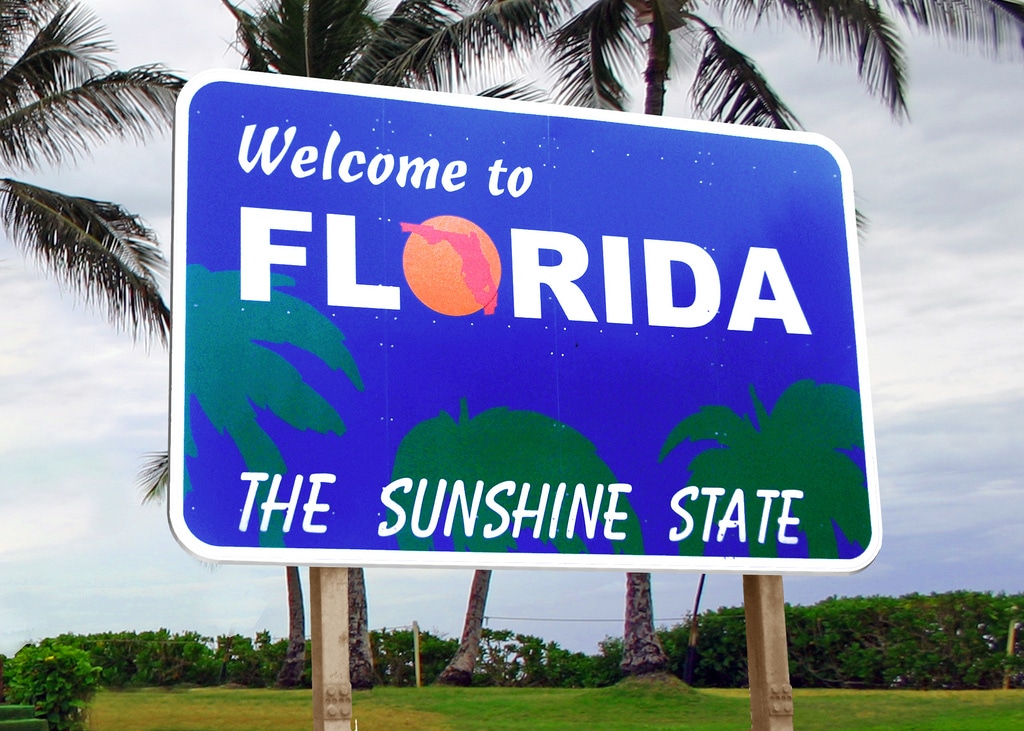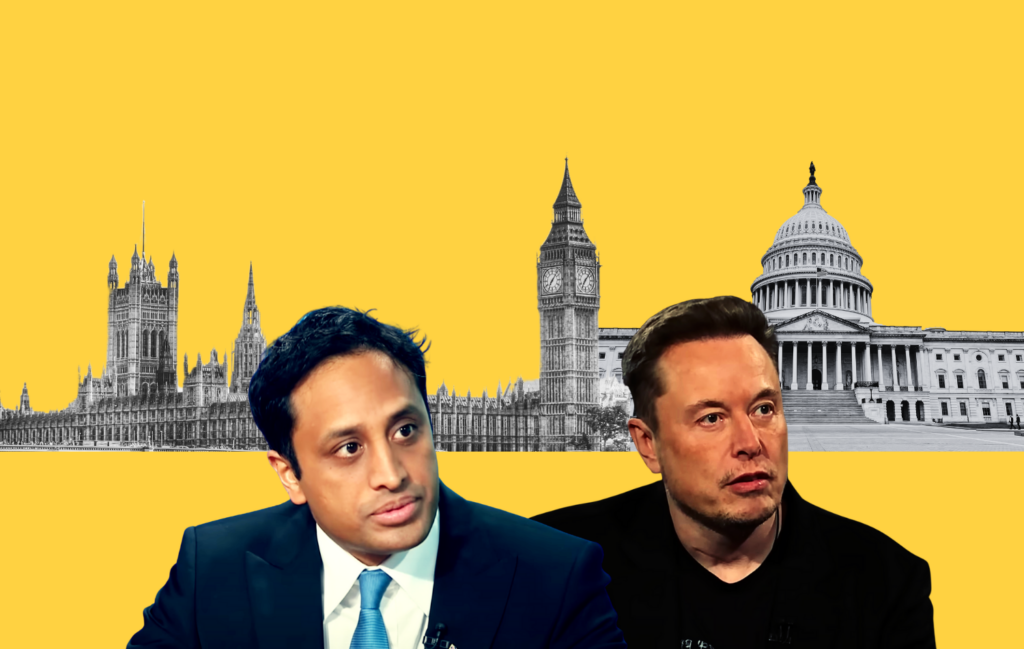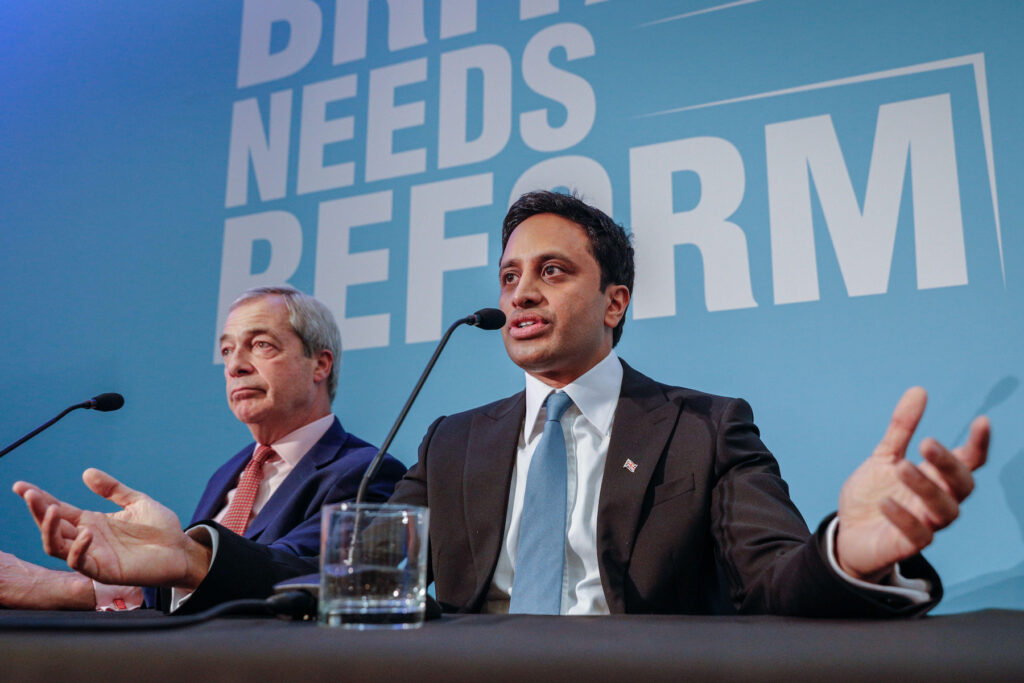The Sunshine State didn’t get its name for nothing: Florida ranks third nationally in rooftop solar energy potential. But thanks to restrictive laws supported by the state’s powerful utility monopolies, the country’s third most populous state is only fourteenth in installed solar capacity.
Florida is one of only four states that bar third-party solar financing, when non-utility companies install solar panels on the roofs of homes and businesses at little or no upfront cost, sometimes selling the energy generated back to the customer.
A battle in Florida is well underway between Big Energy and clean-energy advocates. The current conflict began when a coalition called Floridians for Solar Choice (FSC) proposed a ballot measure to legalize third-party solar agreements. FSC is an unlikely alliance of Tea Party activists and environmentalists, Libertarians, Republicans, a Christian coalition, and business groups.
Utilities are threatened by third-party solar, which could affect their bottom line because of net metering—when utilities pay solar users for excess energy generated by their solar panels—and less demand for grid-based energy and new power plants.
So utility giants teamed up with chambers of commerce and political and “social welfare” nonprofits to form Consumers for Smart Solar (CSS), which produced a competing ballot initiative that allegedly protects consumers and encourages the use of rooftop solar.
Critics of CSS say the group, seeing the positive polling that FSC’s amendment had received, created its measure to confuse voters, mimicking language used in the first measure but with a very different meaning. The ballot title is “Rights of Electricity Consumers Regarding Solar Energy Choice,” echoing CSS’s competitor’s name, Floridians for Solar Choice.
Today the state Supreme Court will hear arguments from David Guest, managing attorney for Earthjustice’s Florida office. The environmental law firm is representing three conservation groups that are challenging the CSS ballot measure that purports to give consumers the right to install solar panels on their homes.
But here’s the catch: Floridians already have the right to do this.
Guest says that under the Florida constitution, residents have the right to own and use property as long as that property has no adverse effects on others. The measure, which would amend the state constitution, attempts to trick voters by pretending to afford them a constitutional right they already have, he says, which is impermissible under Florida law.
The amendment’s language is misleading in more ways than one, says Guest. The amendment summary says that state and local governments will “ensure that consumers who do not choose to install solar are not required to subsidize the costs of backup power and electric grid access to those who do.” But the true meanings of some of these terms, including “subsidize” and “backup power,” Guest says, are not what they might seem to the lay reader.
While many might think “backup power” refers to gas generators, for example, the amendment goes on to define the term as electricity that the utility provides solar users at times when solar energy is unavailable, like nighttime.
Earthjustice’s legal brief also contends that the practice of net metering, when utilities pay solar users for excess energy generated by their solar panels at the same rate that the utility charges for its electricity, does not constitute a subsidy, as the amendment suggests.
“This is a fake amendment that was designed for the purpose of defeating the real one,” says Guest. “It’s simply a device to trick voters into putting the brakes on solar while believing they’re promoting it.”
The CSS amendment “is an outright lie under the guise of solar freedom,” says Debbie Dooley, head of Conservatives for Energy Freedom, a founding organization with FSC, and a Tea Party co-founder who has led successful organizing efforts in Georgia and South Carolina to expand third-party solar agreements.
The CSS petitioners have engaged in dishonest signature gathering, members of the conservation groups have found. FSC members encountered voters who had already signed CSS’s petition, thinking it was FSC’s.
Guest says he was approached by CSS petitioners in November who presented him with both measures, falsely claiming that one covered local jurisdictions and the other covered the state. He signed only the FSC petition, and just recently he called his election supervisor, who had no record of his signed petition.
Big Corporations Back “Consumer” Group
Consumers for Smart Solar is hardly a consumer advocacy organization. In fact, it’s quite the opposite. As of March 4, data from the Florida Division of Elections reveals that major utilities, trade organizations, and a Koch-funded nonprofit provided the vast majority of the more than $7.3 million raised by the group from 2015 through January of this year.
Florida Power & Light, the state’s largest utility, has contributed the most to CSS ($1.3 million), with Duke Energy close behind ($1.2 million).
The 60 Plus Association, a “social welfare” nonprofit funded by many groups backed by the billionaire Koch brothers, put in $1.1 million.
Other energy companies donating large sums were Tampa Electric Company ($1 million) and Gulf Power Company ($715,000), while the Partnership for Affordable Clean Energy ($126,000) and Powersouth Energy Cooperative ($60,000) contributed lesser sums. Mysterious “social welfare” nonprofit Let’s Preserve the American Dream gave $840,000, and other “social welfare” groups Checks and Balances for Economic Growth ($421,000), Florida Faith and Freedom Coalition ($175,000), and Floridians for Government Accountability ($62,000) also pitched in. The National Black Chamber of Commerce gave $100,000, and the Florida Hispanic Chamber of Commerce, $50,000.
The CSS website lists its leaders, a group of political insiders from the Democratic and Republican parties, including a Tea Party head, the president and CEO of the Florida State Hispanic Chamber of Commerce, and a member of the Board of Governors of the state’s university system.
As it turns out, two of CSS’s leaders are profiting from the campaign.
CSS paid $50,000 last year to the consulting firm of co-chairman Dick Batchelor, a former Democratic member of the Florida House, for management and communications consulting, while Batchelor gave only $100 to the CSS, according to campaign finance records.
The government relations firm of “coalition member” and former executive director of the Florida Democratic Party, Screven Watson, received over $25,000 from CSS last year for management and communications consulting and travel. Watson donated $25 to CSS.
Endorsements from black and Hispanic organizations may be the result of a lengthy campaign by Big Energy to “turn people of color against solar power,” documented by Brentin Mock. Corporations like Exxon have funded groups such as the National Black Chamber of Commerce and lobbied members of Congress.
The Edison Electric Institute, a trade association for electricity companies, has successfully converted some lawmakers of color against net metering. In addition to the chambers of commerce, the Florida state NAACP and the National Congress of Black Women are listed as endorsing organizations.
Fundraising by FSC couldn’t compete with the big money that major corporations and deep-pocked political groups poured into CSS, and this funding imbalance was one reason FSC didn’t get the required number of signatures to put its amendment on the 2016 ballot. The group plans to push for its amendment again in 2018.
FSC’s donor list is much longer than its competitor’s, with many small individual donations, but most of the $2.1 million it raised came from the Southern Alliance for Clean Energy Action Fund, the Alliance’s “social welfare” nonprofit arm.
Members of the solar industry have contributed, including Infinite Energy ($25,000), founding organization the Florida Solar Energy Industry Association ($2,900), and Brilliant Harvest ($2,500), but the corporate backing of FSC is nowhere near that of CSS. Conservatives for Energy Freedom pitched in $25,000, and wealthy Democratic donor Barbara Stiefel contributed $100,000.
While the utilities have ponied up large sums to fund the misleading ballot measure, they’ve spent far more over the years to sway the Florida legislature and governor, making it a tough climate for clean-energy advocates.
“The legislature is owned by the utilities,” former GOP state legislator Nancy Argenziano told Rolling Stone. “To me, it’s extremely corrupt. The legislature takes millions from utilities, who make billions” because of decisions made by the Public Service Commission, a five-member board that regulates the utilities and is appointed by the governor and confirmed by the state Senate. “They get what they pay for.”
The effort to derail solar in Florida is one of many from big utilities around the country. Duke Energy has fought third-party sales in North Carolina, and utilities have gone after net metering in Arizona and Nevada. DeSmog will continue to monitor these developments in this series on The War On Solar and Renewable Energy.
Image credit: DonkeyHotey, Creative Commons via Flickr
Subscribe to our newsletter
Stay up to date with DeSmog news and alerts







